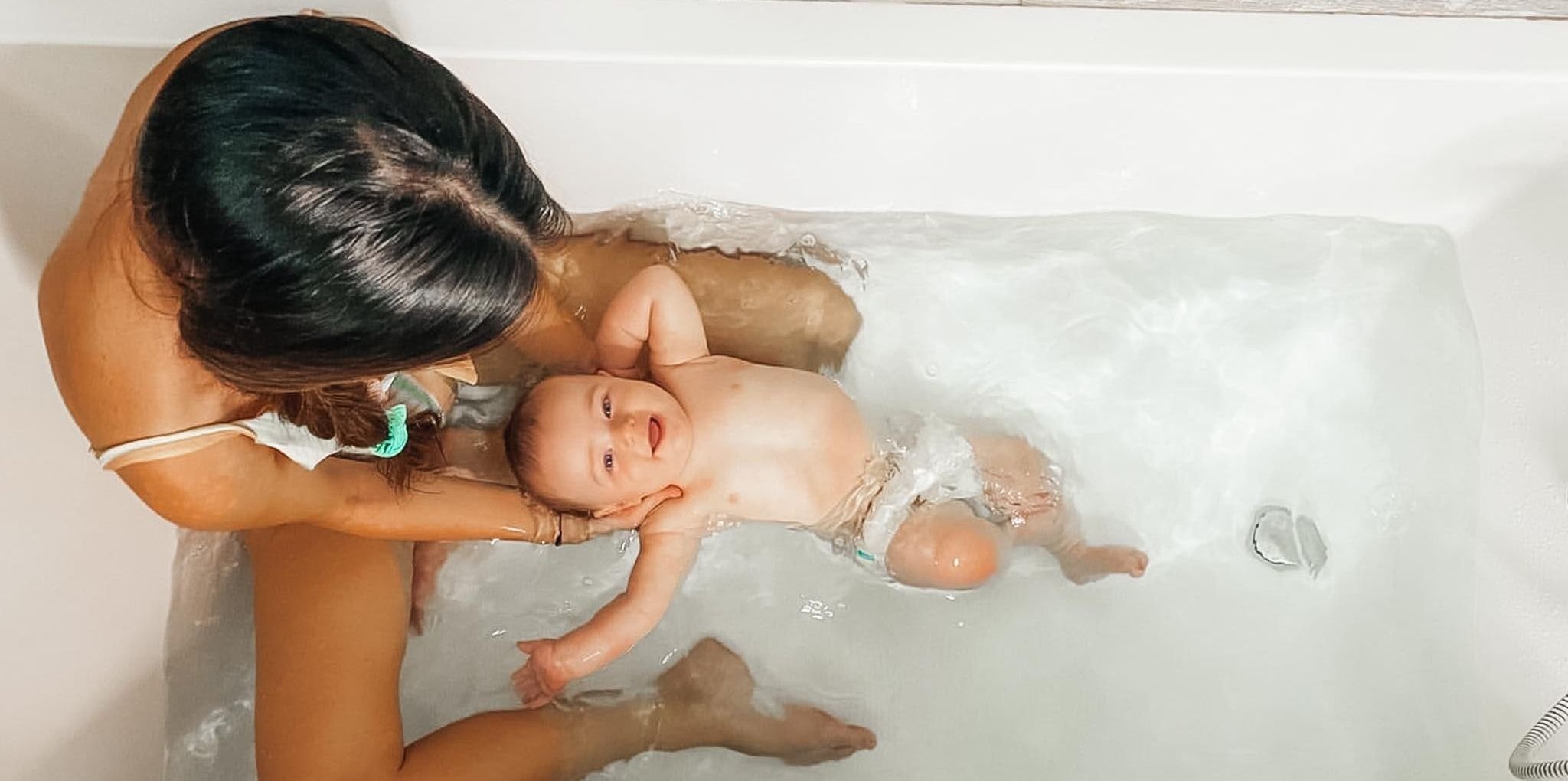How Teaching Your Newborn to Swim Can Help with Postpartum Depression
Welcoming a new baby into the world is a time of joy and excitement, but it can also bring unexpected challenges. One of these challenges is postpartum depression (PPD), a condition that affects many new mothers. While it might seem unusual, one way to help alleviate the symptoms of PPD is through teaching your newborn to swim. We understand the unique journey new mothers face, and we’re here to support you every step of the way.
What is Postpartum Depression?
Postpartum depression is more than just the “baby blues.” It’s a serious mental health condition that can occur after childbirth, affecting your ability to care for yourself and your baby. Symptoms can include feelings of sadness, anxiety, fatigue, irritability, and even detachment from your baby. It’s important to recognize that PPD is not a sign of weakness, and it’s not something you can just “snap out of.” It requires attention and care, just like any other medical condition.
Finding Support
One of the most crucial steps in managing postpartum depression is finding a support system. Many new mothers feel isolated during this time, but there are resources available to help you connect with others who understand what you’re going through. Joining new mom groups, whether in-person or online, can provide a sense of community and support. These groups offer a safe space to share your experiences, exchange advice, and build friendships with other mothers.
If you’re struggling with postpartum depression, don’t hesitate to reach out to a healthcare professional. They can provide guidance on treatment options, which may include therapy, medication, or a combination of both. Remember, seeking help is a sign of strength, not weakness.
The Healing Power of Water: How Swimming Can Help
Swimming is not only a fun & essential skill for your baby to learn; it can also be a powerful tool in helping you manage postpartum depression. Here’s how:
1. Bonding Time with Your Baby
Teaching your newborn to swim creates a special opportunity for bonding. The skin-to-skin contact, eye contact, and gentle movements in the water help strengthen the emotional connection between you and your baby. This bonding time can be incredibly soothing, reducing feelings of anxiety and helping you feel more connected to your little one.
2. Physical Exercise
Swimming is a low-impact exercise that’s gentle on your body, making it an ideal activity for new mothers. While teaching your baby, your body will experience the release of endorphins from the low impact physical movement, the body’s natural mood boosters. Engaging in regular physical activity, like swimming, can help combat the symptoms of depression by improving your overall mood and energy levels.
3. Mindfulness and Relaxation
The rhythmic nature of swimming encourages mindfulness, allowing you to focus on the present moment. As you move through the water with your baby, you can experience a sense of calm and relaxation, which is especially beneficial when dealing with the stress and anxiety associated with postpartum depression.
4. Building Confidence
Teaching your baby to swim can also boost your confidence as a new mother. Watching your natural instincts to teach your baby to learn and grow in the water under your guidance can be incredibly empowering. This sense of accomplishment can help counteract the self-doubt and feelings of inadequacy that often accompany PPD.
Next Steps on Newborn Swimming
We offer specialized virtual swim classes designed for newborns and their mothers. When suffering from PPD, leaving the house can often be a task that is not manageable for you in the moment, so doing this lesson right from your own bathroom is designed to make you at ease and comfortable, without you having to get ready and leave the house.
Our classes are not just about teaching your baby to swim; they’re about creating a nurturing environment where you can connect with your baby. Joining a swim class provides a structured routine, which can be comforting during a time when life feels chaotic.
Additional Resources
If you or someone you know is struggling with postpartum depression, there are many resources available:
Postpartum Support International: Offers support groups, helplines, and resources for new mothers experiencing PPD.
Call the PSI HelpLine: 1-800-944-4773
Text “Help” to 800-944-4773
The Motherhood Center: Provides a range of services, including therapy and support groups specifically for postpartum mental health.
Call : (212) 335-0034
Your Healthcare Provider: Don’t hesitate to reach out to your doctor or therapist for personalized support and treatment options.
Postpartum depression is a serious and challenging condition, but with the right support and resources, it is manageable. Teaching your newborn to swim is one way to not only bond with your baby but also to help alleviate the symptoms of PPD. At watermellow, we’re here to support you on your journey through motherhood, one swim stroke at a time. Don’t hesitate to reach out and join our community—you’re not alone, and together, we can navigate these waters.
















